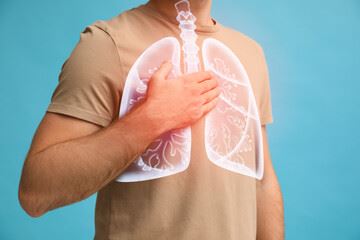
Respiration rate, which denotes the number of times we breathe each minute, holds promise as a potential biomarker for subjective well-being. Respiration rate tends to increase during periods of stress, anxiety, or pain, while it tends to decrease during periods of calm and relaxation. Rates are potentially modifiable: the more meditation hours long-term meditators have cumulatively, the slower their baseline respiration rates. Perhaps it is respiration rate that improves subjective well-being in meditators.
Kral et al. [Scientific Reports] tested the effect of Mindfulness-Based Stress Reduction (MBSR) on the respiration rates and well-being of people who were naïve to meditation. They also conducted a cross-sectional analysis to test for a possible association between respiration rate and well-being in more experienced meditators not involved in the MBSR trial.
The researchers randomized 203 meditation-naïve adults (average age = 42 years; 61% female; 90% Caucasian) to MBSR, a Health Enhancement Program (HEP), or a waitlist control. This secondary analysis is part of a larger study of MBSR and asthma. Out of the 203 participants, 70 had been diagnosed with asthma. Participants with asthma were assigned to either MBSR or HEP, while those without asthma were assigned to MBSR, HEP, or the waitlist control.
The MBSR intervention followed standard protocol. HEP matched MBSR in terms of the length and frequency of group sessions and homework. HEP sessions did not teach mindfulness but instead focused on nutrition, music therapy, balance and agility, and aerobic exercise. Participants completed assessments at pre-randomization, post-intervention, and 6-month follow-up, which included baseline respiration rate and self-report measures of physical and subjective well-being and distress. Respiration rates were measured using an abdominally-placed pneumatic belt while participants underwent fMRI scans (fMRI data were not reported in this article).
The researchers also recruited a cohort of 42 long-term meditators (mean age = 44 years; 62% male; 88% Caucasian) with a minimum of 5 years of daily meditation practice and at least 5 weeks of meditation retreat experience. Long-term meditators were not assigned to interventions and were evaluated once.
The results for the long-term meditators showed a significant association between slower respiration rates and lower distress and greater well-being scores. The meditation-naïve MBSR group showed significantly lowered respiration rates compared to waitlist controls, but this difference was no longer significant at six months. The MBSR group had decreased distress symptoms at post-intervention compared to both HEP and control groups, but scores on well-being showed no group differences after the intervention.
The study suggests that slower respiration rates are associated with greater subjective well-being in long-term meditators. MBSR can lower respiration rates and reduce distress in meditation-naïve participants, but slowed respiration rates do not persist over time, and there is no significant improvement in well-being beyond some stress and anxiety reduction.
The study has limitations, including the differential enrollment and assignment to groups of asthmatic and non-asthmatic samples, as well as by its reliance on a single measure of respiration rate captured only in a controlled laboratory setting. Additionally, the measure of subjective well-being used in this study may not be sensitive to short-term interventions but may primarily reflect long-term shifts in other factors such as relationships and achievements.
Reference:
Kral, T. R. A., Weng, H. Y., Mitra, V., Imhoff-Smith, T. P., Azemi, E., Goldman, R. I., Rosenkranz, M. A., Wu, S., Chen, A., & Davidson, R. J. (2023). Slower respiration rate is associated with higher self-reported well-being after wellness training. Scientific Reports, 13(1), 15953.
Link to study